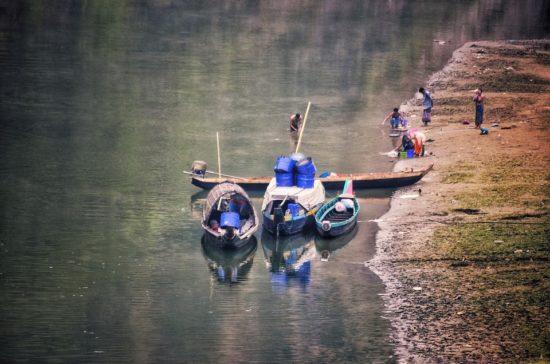Could the next big outbreak be lurking in the water? Pharma pollution blamed for breeding superbugs
Scientists fear antimicrobial residues from factories in India have the potential to spark a new health crisis with drug-resistant bacteria.
At first, they look like blisters, gathered in clusters at the base of her fingers. But as Gangadevi Sattamma rolls up her sleeves, the extent of the infection, winding its way up her forearms, becomes apparent.
“Most of the people get infected, this skin infection,” the 40-year-old paddy worker says. She gestures to a line of women, barefoot and ankle-deep in muddy water, transplanting rice seedlings into the flooded field behind her.
“So many people working here get stomach pain and fever regularly.”
But whilst the water which the women are standing in, channelled in from the nearby River Musi, is essential for irrigating the paddy fields, it may also be the source of their health problems.
Hyderabad, the town in southern India which Sattamma’s paddy field sits on the outskirts of, is one of the largest producers of pharmaceuticals in the world. Its water bodies have long borne the brunt of pollution from industrial effluent.
But researchers fear that antimicrobial residues from these industries are now entering the River Musi, breeding drug-resistant bacteria which then spreads downstream, where it poses a risk to populations further afield – and, in areas where polluted river water is used for irrigation, may even be entering the food chain.
AMR NEWS
Your Biweekly Source for Global AMR Insights!
Stay informed with the essential newsletter that brings together all the latest One Health news on antimicrobial resistance. Delivered straight to your inbox every two weeks, AMR NEWS provides a curated selection of international insights, key publications, and the latest updates in the fight against AMR.
Don’t miss out on staying ahead in the global AMR movement—subscribe now!





